 Petzlover
Petzlover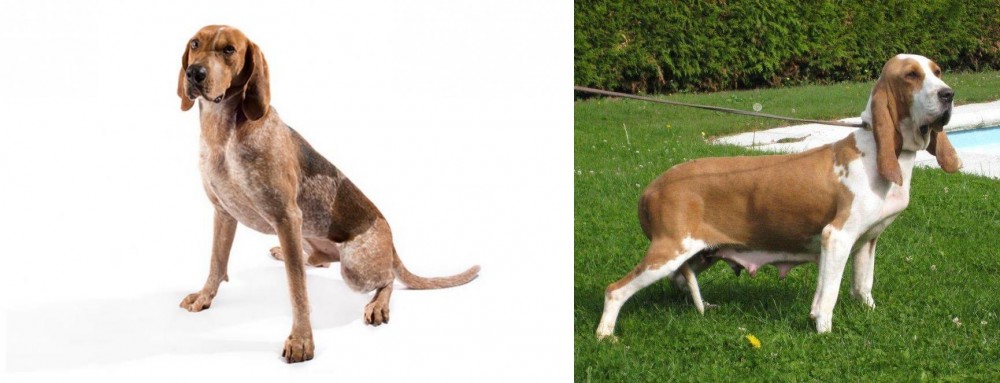 Coonhound is originated from United States but Sabueso Espanol is originated from Spain. Coonhound may grow 11 cm / 5 inches higher than Sabueso Espanol. Coonhound may weigh 9 kg / 20 pounds more than Sabueso Espanol. Both Coonhound and Sabueso Espanol has same life span. Both Coonhound and Sabueso Espanol has almost same litter size. Both Coonhound and Sabueso Espanol requires Low Maintenance.
Coonhound is originated from United States but Sabueso Espanol is originated from Spain. Coonhound may grow 11 cm / 5 inches higher than Sabueso Espanol. Coonhound may weigh 9 kg / 20 pounds more than Sabueso Espanol. Both Coonhound and Sabueso Espanol has same life span. Both Coonhound and Sabueso Espanol has almost same litter size. Both Coonhound and Sabueso Espanol requires Low Maintenance.
 The Coonhound, hailing from the United States of America, is a scenthound or hunting dog of which there are 6 distinct breeds which are recognized by the United Kennel Club.
The Coonhound, hailing from the United States of America, is a scenthound or hunting dog of which there are 6 distinct breeds which are recognized by the United Kennel Club.
Because foxhounds were regarded as inadequate for hunting, people started looking at the developlent of other hounds who had a keen sense of smell and the ability to track and animal effectively and without necessarily a human commanding it.
Foundation dogs were selected because of their keen sense of smell and Bloodhounds were also added to the Coonhound line to provide the Coonhound with superb tracking skills. Its precise origins are unknown but it is believed that many of the European hunting hounds were involved in its development as well as the Kerry Beagle and the FrenchBleu Gascogne hounds.
It was in 1912 that the first Black and Tans were registered with the United Kennel Club. In 1945 the American Kennel followed.
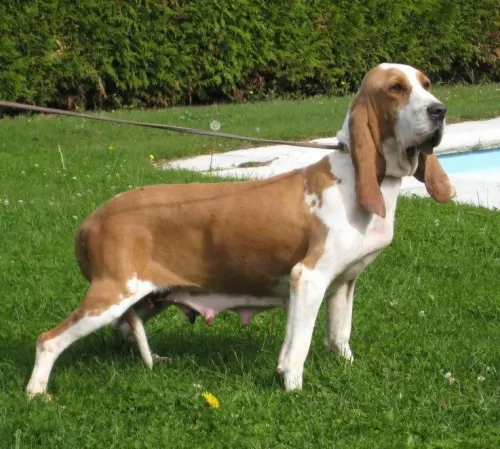 The Sabueso Español is a Spanish Scenthound, hailing from the Iberian Peninsula, Spain. Beyond Spanish borders, this dog is virtually unknown.
The Sabueso Español is a Spanish Scenthound, hailing from the Iberian Peninsula, Spain. Beyond Spanish borders, this dog is virtually unknown.
There isn’t much on its origins but it is believed that it may have developed from the bloodhound. The dog has been used for hundreds of years to hunt down wild boar, deer and all kinds of game. To this day it is essentially a hunting dog and not particularly used as a pet.
When he is on the hunt, he uses his baying bark to communicate with the pack. The dog is recognised by the UKC under the category ‘Scent Hound’.
 Known also as the Black and Tan Coonhound, the Coonhound is a medium to large dog weighing 23–34kg and standing at 53-69cm. He makes an exceptional pet.
Known also as the Black and Tan Coonhound, the Coonhound is a medium to large dog weighing 23–34kg and standing at 53-69cm. He makes an exceptional pet.
He has a short, dense coat of black and tan in color with tan markings around the muzzle. He has long, floppy ears and a long tail. With his long, strong, muscled legs he is able to pick up speed when on the hunt. He is known for his deep, booming bark.
The Coonhound isn’t as jaunty as some other dog breeds but he is social, playful and friendly. He is even tempered and sensitive, and you’ll know when you’ve hurt his feelings as he gets a look about him of utter misery.
He definitely isn’t suited to apartment living and being left on his own, and is therefore not suited to an owner who works all day and leaves him on his own. They just love human companionship, and enjoy taking part in all the activities of their owner's life.
Early training and socialization will be necessary to ensure he grows up calm, obedient, relaxed and confident. When he has been socialized he makes an excellent family pet, getting on well with children as well as with other pets in the home.
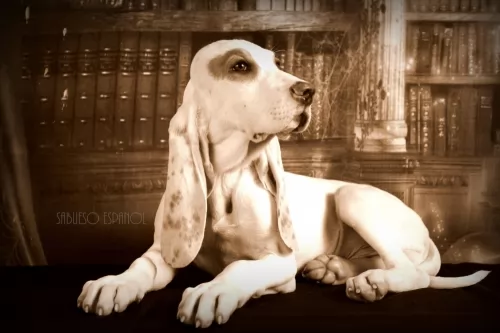 Known also as the Spanish Hound, this medium-sized dog stands at between 47 and 58cm in height ad weighs 23 to 25kg.
Known also as the Spanish Hound, this medium-sized dog stands at between 47 and 58cm in height ad weighs 23 to 25kg.
The dog has very long ears, the eyes are amber colored and the long tail is thin ad whip-like. The coat is short and smooth and is mostly white with orangey, lemon or reddish brown patches.
People think that because these dogs are such excellent hunting dogs, they can't be a good pet, but they are calm and loving, making an excellent companion dog.
He is also good with children in the home. He will just need to be trained and socialized if you want him to be well mannered and obedient as he is independent and can be stubborn.
 The Coonhound is often described as a carefree, happy-go-lucky type of dog breed who is social and who just loves to spend time with his human family.
The Coonhound is often described as a carefree, happy-go-lucky type of dog breed who is social and who just loves to spend time with his human family.
They just love their human family, and are full of mischievous tricks, being amusing and entertaining for the family.
He is a playful, gentle dog and he seems to keep his puppy nature much longer than with other dog breeds, but this is part of his appealing nature. He isn't a dog breed for everyone as some dog owners might want a more serious breed, but when trained and socialized, he promises to turn out to be an adored family pet.
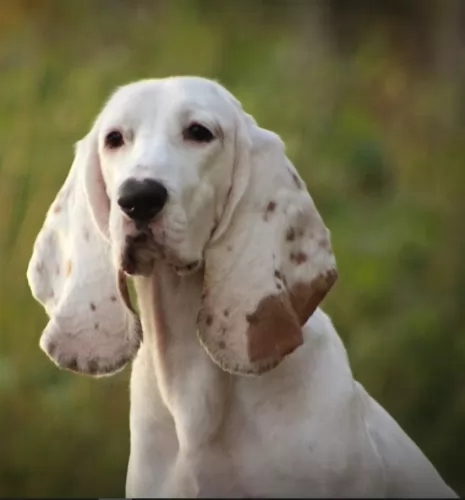 The attractive Sabueso Español is a calm, amicable, sweet dog that is loving towards his human owners. He is good with children but would prefer older children who know how to be kind and gentle towards him.
The attractive Sabueso Español is a calm, amicable, sweet dog that is loving towards his human owners. He is good with children but would prefer older children who know how to be kind and gentle towards him.
He isn’t aggressive and will get on well with other dogs in the house too. He is essentially an outdoor dog and will love nothing more than to have his family involved with him with activities outside.
If you’re looking for a great pet and companion for home and outdoor life, this dog is a superb choice.
 Coonhounds usually enjoy very good health, but they can still suffer with any one of the more common dog illnesses there are. They’ve got long ears so they are more prone to ear infections. Also, hip dysplasia has been recorded too.
Coonhounds usually enjoy very good health, but they can still suffer with any one of the more common dog illnesses there are. They’ve got long ears so they are more prone to ear infections. Also, hip dysplasia has been recorded too.
It is why so many breeders opt to have their dogs certified by the Orthopedic Foundation of America.
Ear infections in dogs with long ears are common and most dogs who suffer with an ear infection will scratch at the ears and shake their heads. There can also be redness in the ear.
Mites, bacteria and yeast are all common problems, and your veterinarian can treat it and show you how to clean the dog’s ears to keep them free from infection in the future.
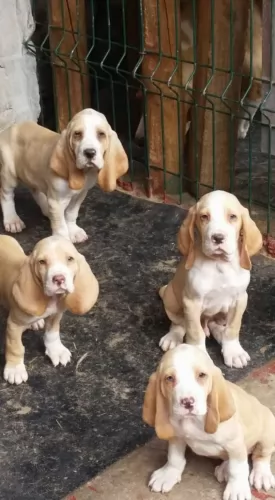 The Sabueso can live to be 12 years of age, but it is still good to be aware of typical dog illnesses that he can succumb to.
The Sabueso can live to be 12 years of age, but it is still good to be aware of typical dog illnesses that he can succumb to.
Hound dogs with floppy ears are known for getting ear infections. This is because floppy eared dogs don’t get the right amount of air circulation, and excess wax, dirt and moisture cause problems within the ear.
Excess body fat with a dog can create problems for your dog. Obesity is common in all dogs and dogs of all ages. Dogs that are obese don’t want to exercise. Obesity can cause a host of problems with your dog and even reduce his lifespan.
 Your Coonhound will want a lot of exercise. While you keep him on a leash when walking him or allowing him to run while you cycle, he’ll also want a place where he can run off the leash.
Your Coonhound will want a lot of exercise. While you keep him on a leash when walking him or allowing him to run while you cycle, he’ll also want a place where he can run off the leash.
Even though the Coonhound is a short haired dog, he does shed. Making use of a rubber curry brush, brush him down twice a week to maintain his beautiful black, velvety coat.
Because he is an athletic outdoor dog, he may be more prone to picking up ticks and fleas and there are excellent shampoos available that keep these parasites at bay for a good many days.
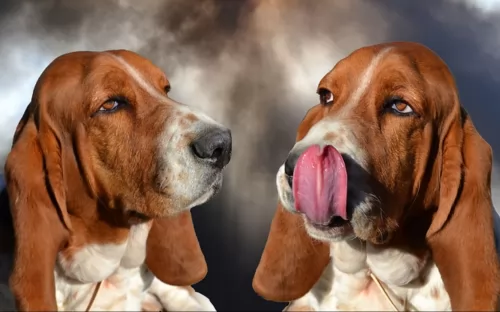 The short coat of the Sabueso Español makes him a low maintenance dog. and a brush twice a week is enough to keep his coat in tip top condition. As you brush him, make sure to check for any odd, new lumps you come across.
The short coat of the Sabueso Español makes him a low maintenance dog. and a brush twice a week is enough to keep his coat in tip top condition. As you brush him, make sure to check for any odd, new lumps you come across.
Check inside his ears, take a look at his eyes and make sure they’re bright and clear.
Look inside his mouth. He has no way of telling you if he has a rotten tooth causing him pain, and he relies on you to check on this for him.
Provide him with a dry, warm, comfortable bed.
These dogs are known for their stamina and energy and will ideally suit a home on a large property and not a small property in the city. They need lots of open spaces and plenty of exercise. They love long walks, preferably vigorous hikes, swimming and ball and rope games.
Ensure he is neutered or spayed if you want to avoid puppies.
Make sure his vaccinations are up to date to prevent deadly canine diseases.
Your Sabueso Espanol needs a nutritious diet if he is to remain healthy and happy. Commercially manufactured dog foods can be a good choice if you go for the high quality ones packed with vitamins and minerals. They can be convenient and well balanced. To provide your dog with some variety, provide him with some home-made food added into the dry kibble from time to time. No need to make home-made food all complicated and involved. Simply boil chicken, brown rice, sweet potatoes, carrots and spinach together, chopping it all up, and adding little bits of this to your dog's dry kibble twice a week. This will keep him happy and healthy. Try to include a bit of raw meat occasionally and never let your dog be without a constant source of fresh, cool water.